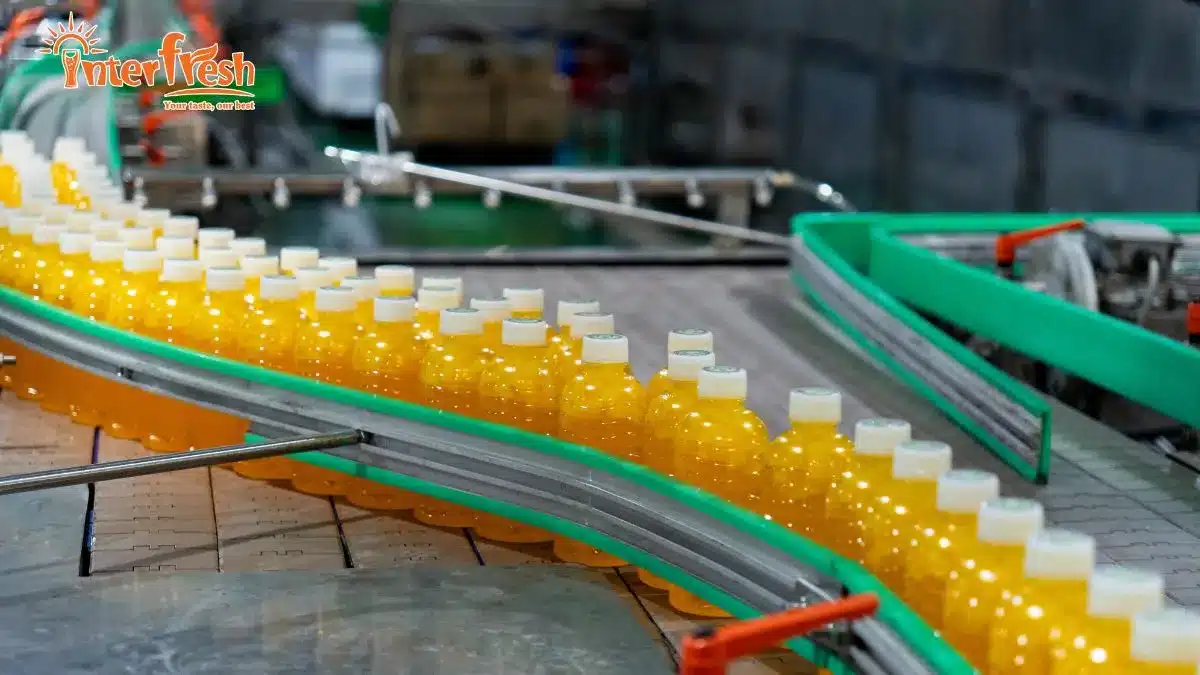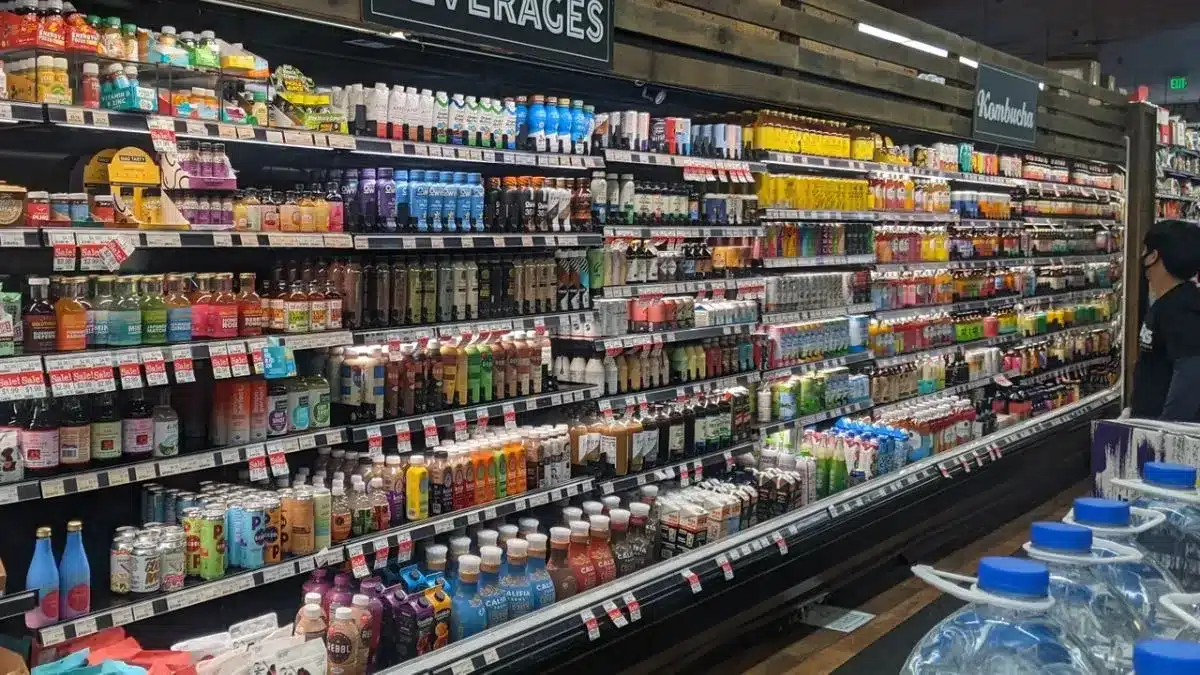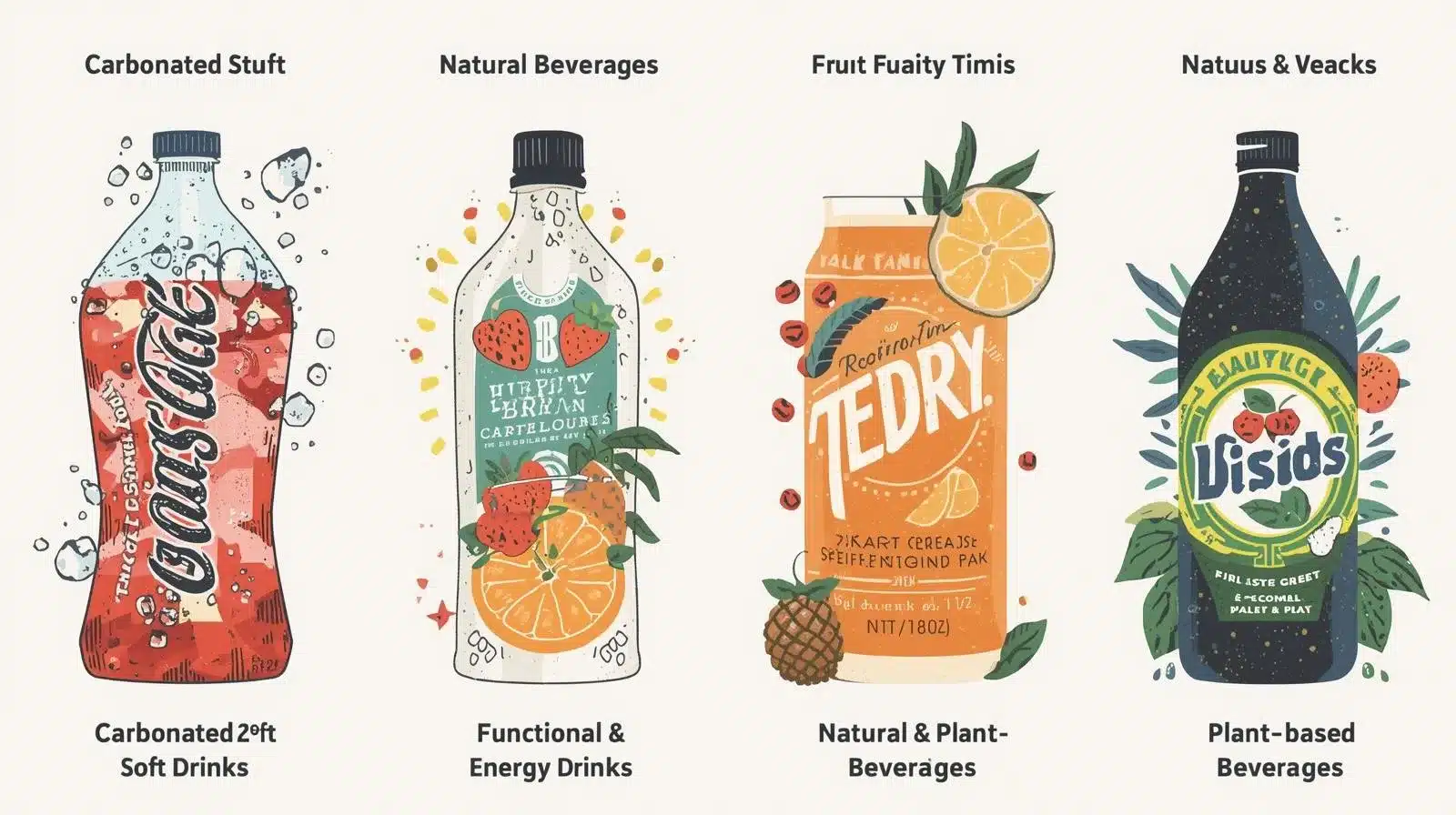In the competitive beverage retail market, choosing your supply model is more than a purchase. It’s a strategic decision. Your choice of beverages wholesale suppliers or producing your own private label line impacts three core business outcomes:
- Profit margins: Selecting optimal sourcing reduces input cost and boosts margin.
- Product quality: A dependable supply chain keeps your brand credible and consistent.
- Business scalability: Flexible, reliable sourcing supports growth and market expansion.
This article gives retailers a three-step roadmap to:
- Analyse and select the optimal supply model (wholesale vs. private label).
- Find reliable suppliers or partners to optimize cost.
- Ensure operations run smoothly and scale-ready for the long term.
Table of Contents
- 1 Strategic comparison between Wholesale Suppliers and Private Label (The profit matrix)
- 2 Understanding the 3 types of Beverage Wholesale Suppliers
- 3 Which is best for your retail strategy?
- 4 Top 4 beverage categories with the highest profit margins in 2025
- 5 Packaging & Product presentation trends
- 6 Where to find reliable beverages wholesale suppliers: The 4 key channels
- 7 FAQ
- 8 References
Strategic comparison between Wholesale Suppliers and Private Label (The profit matrix)

Criteria | Beverages Wholesale Suppliers | Private Label Manufacturing |
Branding | Use existing brand equity | Build your own retail brand identity |
Risk | Low: products already tested by the market | Higher: requires product R&D and marketing |
Profit Margin | Moderate, due to pricing competition | Higher, as you control pricing and costs |
Flexibility | Low: fixed recipes and packaging | High: customize formula, flavor, and design |
Brand and Market Speed: Working with established beverages wholesale suppliers allows faster market penetration and lower marketing costs. In contrast, a private label demands upfront investment in brand awareness but builds long-term exclusivity and control.
Risk & Product Control: Private label means full ownership of formulation, packaging, and quality. Any product issue affects your brand directly. Wholesale sourcing spreads the risk. You can switch brands easily, but you sacrifice product control.
Financial Flexibility: Private labels offer higher margins when volume stabilizes. Wholesale delivers faster sales velocity with less capital risk. The smartest retailers in 2025 use a hybrid model – wholesale for proven bestsellers, private label for high-margin innovation.
Understanding the 3 types of Beverage Wholesale Suppliers
To find your ideal supplier, understand the advantages and trade offs of each source:
Manufacturers
- Lowest unit price, no middlemen.
- High MOQ and limited SKUs.
Exclusive Distributors
- Diverse product portfolio and after-sales support.
- Slightly higher pricing due to added services.
B2B Platforms or Wholesale Markets
- Perfect for small test orders, low inventory risk.
- Quality inconsistency and unstable long-term supply.
Choosing the right mix helps balance cost, flexibility, and reliability across product lines.
Which is best for your retail strategy?

There’s no one size fits all choice between beverage wholesale suppliers and private label. The right sourcing model depends on your goals cost efficiency, speed to market, or brand control. Understanding these priorities helps you build a supply strategy that supports growth and profit.
If your focus is price competitiveness and steady supply, wholesale sourcing works best. Partnering directly with manufacturers or trusted beverage wholesale suppliers keeps costs low and ensures reliable inventory for high turnover products.
For retailers who value exclusivity and control, private label offers higher margins and full customization, from recipe to packaging. It’s ideal for building brand identity and long term customer loyalty.
A growing number of retailers in 2025 are combining both models. Beverage wholesale suppliers provides stability and market reach, while private labels beverage manufacturers add uniqueness and brand value. This hybrid approach delivers flexibility, profitability, and faster response to beverage trends.
Hybrid sourcing = stability + innovation. It lets you stay price-competitive while building your own distinct product line over time.
Top 4 beverage categories with the highest profit margins in 2025

Carbonated Soft Drinks (CSDs): High volume, but fierce price competition. Profits rely on bulk sales and distributor promotions.
Natural beverages (Juice, Tea, Coconut Water): Rising global demand for “clean label” and “low-sugar” drinks. Retailers should partner with tropical fruit beverages wholesale suppliers that meet HACCP or ISO standards to balance quality and cost.
Functional & Energy drinks (Private label opportunity)
A booming category in 2025, including vitamin water, collagen-infused beverages, and natural caffeine drinks.
private labels beverage manufacturers work well here. You can create unique, health-driven formulas.
Natural & Plant based beverages (High demand, premium margin) Strong growth in oat, almond, and soy milk. Targeting vegan and lactose-intolerant consumers brings premium margins.
Packaging & Product presentation trends
Packaging influences logistics, sustainability, and consumer appeal.
- Size Variants: 250-330ml (on-the-go convenience), 1L-2L (family consumption).
- Material Strategy:
- Aluminum cans: eco friendly, strong preservation.
- PET bottles: cost efficient and lightweight.
- Tetra Pak: long shelf life, sustainability appeal.
In 2025, retailers should prioritize flexible, recyclable, and region specific packaging formats that align with market preferences.
Where to find reliable beverages wholesale suppliers: The 4 key channels
You can reach out to beverage wholesale suppliers in many ways. Below are 3 common and easy channels for any retailer.
Online Supplier Directories
These platforms make it easier to find verified beverages wholesale suppliers and drink distributors for your business:
- Alibaba: Global sourcing hub for bottled water, fruit juice, ready-to-drink coffee, tea, and functional beverages. Ideal for connecting with OEM beverage suppliers in Asia.
- TradeIndia / GlobalSources: Excellent for accessing Asian beverage manufacturers and private label drink producers.
- ThomasNet: A U.S. focused directory listing verified beverage manufacturers, bulk distributors, and packaging suppliers.
Tip for you: When sourcing beverages online, always check supplier certifications, minimum order quantities (MOQ), and OEM capabilities.
Wholesale Marketplaces & E-commerce
If you prefer ready to order options, wholesale marketplaces provide flexible sourcing for retailers and cafés:
- Amazon Business: Offers bulk beverage products and private-label opportunities for global retailers.
- Costco Business Center: Ideal for restaurants, coffee, and offices looking for consistent beverage supply at wholesale prices.
- Ubuy / DHgate: Great for small to medium beverage retailers testing new SKUs or importing drinks in bulk at competitive rates.
These e-commerce platforms simplify beverage procurement and support smaller importers looking to scale efficiently.
Local & Regional Distributors
Working with local beverage wholesale suppliers can reduce logistics costs and improve delivery time.
- Contact beverage brands directly to identify official distributors in your market.
- Use Google Maps to search for “beverage wholesalers”, “drink distributors” or “bulk beverage suppliers” near you.
- Visit local wholesale markets or food distribution hubs to evaluate product freshness and reliability.
Trade Shows & Expos
Global beverage trade shows are excellent places to discover new suppliers and network with industry professionals.
- Anuga (Germany): One of the world’s largest food and beverage trade fairs, featuring hundreds of drink wholesalers and exporters.
- Gulfood (Dubai): The top Middle Eastern platform for beverage manufacturers and private label brands.
- Natural Products Expo (USA): Perfect for sourcing organic drinks, functional beverages, and health-focused suppliers.
Attending trade shows lets you taste samples, compare products, and build trust directly with suppliers, something online sourcing can’t replace.
FAQ
- What is a Beverages Wholesale Suppliers and who do they serve?
A wholesale beverage supplier is an intermediary who sells finished, branded drink products in high volume (bulk) to retailers, distributors, and food service (F&B) businesses. They allow retailers to procure inventory at scale to optimize cost and ensure consistent supply, rather than managing manufacturing themselves.
- Should a retailer choose Wholesale, Private Label, or a Hybrid sourcing model?
The optimal choice depends entirely on your strategic business goals. Beverages Wholesale Suppliers is best for rapid market entry and low capital risk. Private Label provides higher profit margins and absolute brand control. The most successful retailers today often adopt a Hybrid Model to balance the stability of high-volume bestsellers (Wholesale) with the high-margin differentiation of unique, owned products (Private Label).
- What minimum order quantities (MOQ) should I expect from direct manufacturers?
MOQs vary significantly based on the beverage type and packaging format. When dealing with Direct Manufacturers, you should typically be prepared for an MOQ ranging from 15,000 to 30,000 units (cans/bottles) per SKU to secure the most competitive unit price. Distributors and B2B platforms will accept lower volumes but at a higher cost per unit.
- How critical is packaging for controlling logistics costs and retailer margin?
Packaging is a critical factor as it impacts both cost and consumer appeal. The size and material (such as aluminum cans, PET bottles, or Tetra Pak) directly affect shipping weight and logistics costs. Prioritizing flexible formats (e.g., 250ml for on-the-go convenience and 1L for family consumption) helps you serve diverse market segments efficiently while protecting your profit margins.
References
- Mintel Group (2024). Global Drinks Market Trend Analysis 2024-2025
- Grand View Research (2024). Beverage Packaging Industry Forecast: Material and Sustainability Report
- Statista 2023, B2B E-commerce worldwide – statistics & facts, Statista. https://www.statista.com/topics/2698/b2b-e-commerce/.
- SIAL Paris (2024). Discover the world’s largest food innovation exhibition, SIAL Paris. https://www.sialparis.com/.
- IWSR Drinks Market Analysis (2025). No- and Low-Alcohol Drinks Market Growth, IWSR. https://www.iwsr.com/.
